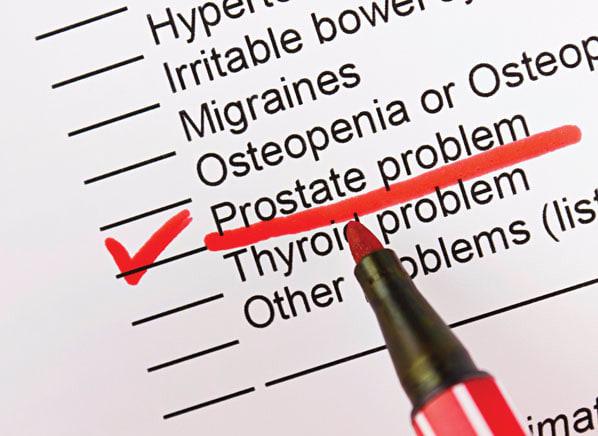Sign In


Each year more than 1 million men in the U.S. have a prostate biopsy, an invasive procedure to discover whether the prostate gland is cancerous. While most prostate biopsies turn out to be negative, the rate of cancer detection as a result of biopsies ranges from 17 to 44 percent in recent studies. But an alarming number of the men who undergo the procedure are also getting infections that are resistant to antibiotics. The problem is so serious that our medical consultants say men should be cautious about prostate-cancer screening.
A biopsy is the usual follow-up procedure if a man's prostate-specific antigen level is consistently elevated, as shown by a blood test. In a standard biopsy, a urologist uses an ultrasound probe to guide a needle through the wall of the rectum and into the prostate gland, taking multiple tissue samples to examine for cancerous cells. Since the rectum is full of bacteria, doctors should prescribe antibiotics before and after the procedure to thwart infection.
The latest research suggests that between 1 percent and 4 percent of men who have a prostate biopsy will develop an infection requiring hospital care. The 30-day hospital admission rate for infections increased from 0.6 percent in 1996 to 3.6 percent in 2005, according to a study of 75,190 Canadian men published in January 2013 in the Journal of Urology. A U.S. study of 17,472 men enrolled in Medicare covering a 16-year span found an increased rate of infections requiring hospitalization. The bump was seen toward the end of the study.
For more information read "Evaluating drugs used to treat enlarged prostate."
In the last decade, some bacterial strains have become resistant to the class of antibiotics that were once highly effective: fluoroquinolones such as ciprofloxacin (Cipro and generic). Studies suggest that about one in five men undergoing biopsies harbor E. coli bacteria that are resistant to fluoroquinolones. They are more likely to develop infections of the urinary tract or bloodstream and land in a hospital's intensive-care unit.
With proper precautions, prostate biopsies can be done with a lower risk of infection. It's worth noting that complications beyond infections have become less common, so the overall rate of hospitalizations after biopsies decreased from 12 percent in the early 1990s to about 5 percent by 2007 in the study of men enrolled in Medicare. So don't let a fear of infection deter you from having a prostate biopsy if you and your doctor decide it's appropriate.
"The best way to reduce a biopsy complication is to reduce unnecessary biopsies," said Edward Schaeffer, M.D., Ph.D., an associate professor at Johns Hopkins University School of Medicine. Considering all the evidence, here's what our medical experts advise.
Screening tests can sometimes do more harm than good. Find out which cancer tests you need and which ones you don't.
This article also appeared in the October 2013 issue of Consumer Reports on Health.
 Build & Buy Car Buying Service
Build & Buy Car Buying Service
Save thousands off MSRP with upfront dealer pricing information and a transparent car buying experience.
 Get Ratings on the go and compare
Get Ratings on the go and compare
while you shop